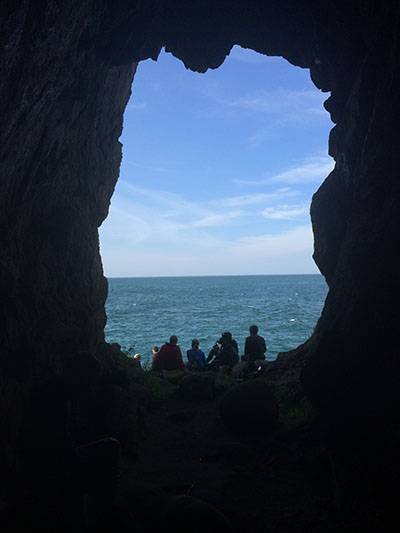
The UCL Institute of Archaeology undertakes world-leading research in early
human archaeology. From projects focused on the origins of stone tool
technology, to fieldwork looking at the responses of Neanderthals and modern
human populations to climate change, the Institute has a strong record of high
quality fieldwork and lab research.
The Archaeology of Human Evolution research network brings together the wide range of current Palaeolithic research at the Institute and works to foster research partnerships with researchers in associated disciplines both within UCL and beyond. It brings students from all stages of their careers into our research through fieldwork experience, dissertations and PhD projects.
Archaeological data provides an essential contribution to the study of human evolution. Primary archaeological datasets are varied and include stone tools, butchered animal remains, modified organic materials, structural remains and the traces of early art. From these sources we are able to develop robust models of past human behaviour and examine variation across the globe within a timeframe which now exceeds 2.6 million years.
Archaeological excavations also provide the best source for the recovery of high quality scientific data relating to ancient human anatomy, associated environmental evidence, and indications of dating. Consequently Palaeolithic field archaeology, with its distinctive approach to geological and sedimentary context and detailed recording methods capable of answering complex taphonomic questions, can be considered a specialised sub-discipline of wider archaeological fieldwork.
Network Aims and Objectives
- To strengthen Palaeolithic research at the Institute of Archaeology by creating synergies amongst members of staff undertaking research on behavioural aspects of human evolution.
- To widen links and develop research with other UCL departments.
- To expand the involvement of students in these subject areas, especially though our Palaeoanthropology and Palaeolithic Archaeology Masters course. To actively develop doctoral and post-doctoral research projects, which can then be advertised for suitable students.
- To run workshops and seminar series on comparative and thematic issues relevant to these time periods.
- To develop fieldwork methodologies and offer high-quality field-training for students with interests in the Palaeolithic.
Network Research Themes
- Origins of Acheulean technology in East Africa.
- The early human occupation record of Northern Europe
- Late Neanderthal and Modern human interactions in the Near East and Europe 125 - 30 kya.
- Hunter-gatherer responses to the Late Pleistocene/Early Holocene transition.
- Methodologies in fieldwork recording and scientific approaches to stone tool technology.
- Neanderthal evolution in Northern Europe.
Network Research Projects
The following projects are currently being run by or involve key network members:
- ORACEAF: Origins of the Acheulean at Olduvai
- Paleoanthropological Research in the Ethiopian Rift Valley
- Pathways to Ancient Britain
- Percussive Technology in Human Evolution: A Comparative Approach
- Prehistoric Hunting Strategies in Jordan
- Threshold: Origins of Homebase Signatures in the Pleistocene
- LAMP: La Manche Prehistoric Research Group
- Boxgrove: Analysis and Publications of excavations 1987-1996
Network Field Projects
- Olduvai Gorge, Tanzania
- Ice Age Island, Jersey Palaeolithic Survey
- Azraq Basin Project, Jordan
- Excavations at Buendía rockshelter, Spain
- Beedings Palaeolithic Survey
- Excavations at Cova Gran, Spain
- Excavations at Roca dels Bous, Spain
- Excavations at La Cotte de St Brelade, Jersey
- The Valdoe Survey: Boxgrove Palaeolandscape.
- Qadisha Valley Project, Lebanon
Funding
Network members have received funding from the following sources, thus far, for their research activities:
- Arts and Humanities Research Council (AHRC)
- European Research Council (ERC)
- Natural Environment Research Council (NERC)
- British Academy
- CBRL
- English Heritage
- Society of Antiquaries
- Spanish Government
 Close
Close

